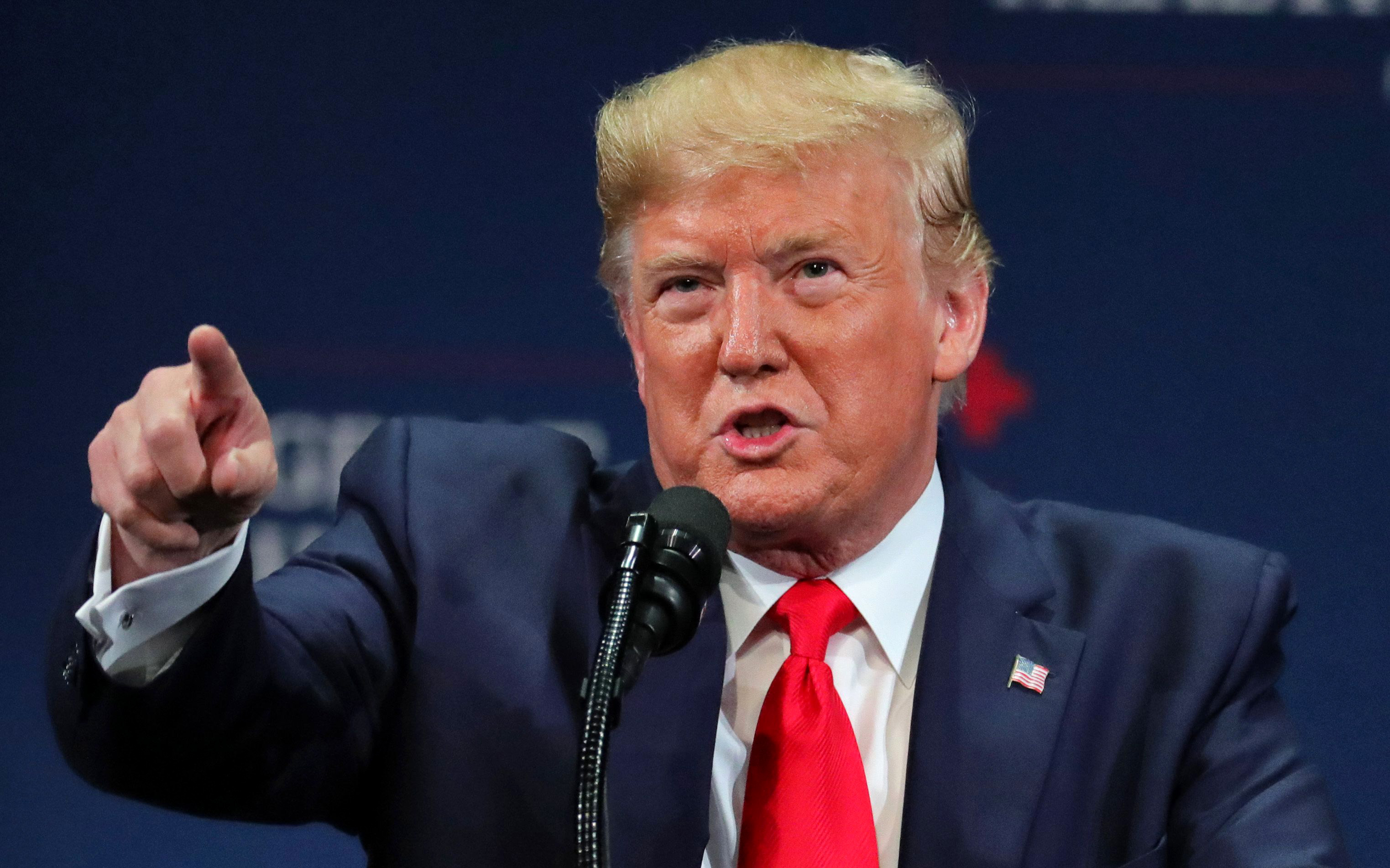
Donald J. Trump is now the fourth of our presidents to face impeachment. Two of them, Andrew Johnson and Bill Clinton, actually were impeached, although neither of them were removed from office by the Senate. Johnson survived by the margin of a single vote, but his political career was ended, and although he finished his term he was not nominated to a new one. Clinton was serving a second and final term that he completed, retiring with a high approval rating but one that has not, over the years, sustained itself. Richard Nixon resigned the presidency as impeachment articles were being drafted, and his support in the Senate collapsed. His tenure ended in disgrace, and he remains, to this point, the most reviled of our presidents.
Now Donald Trump faces impeachment. Officially, what has opened is an impeachment “inquiry,” or an investigation as to whether Trump’s conduct warrants removal from office and on which grounds. There is little, if any, doubt that a bill of impeachment will result. About half the general population and a decisive majority of Democratic voters favor it. The Democratic majority in the House of Representatives has politically committed itself to it. It can’t be avoided under any circumstances that can presently be conceived.
Impeachments are supposedly bad news for any president; successful or not, they are a permanent stigma. But Donald Trump seems to be not only accepting his impeachment, but courting it. In fact, he has gone so far to do so that some commentators have taken to characterizing his recent behavior as a form of self-impeachment; that is, as a deliberate confirmation of the single charge that pushed House Democrats into opening their formal inquiry.
The charge was that Trump, in a phone call to Ukrainian President Volodymyr Zelensky, attempted to coerce him into finding or conjuring up dirt on his presidential rival, former Vice President Joe Biden. In return, Trump would give his support for Zelensky’s beleaguered regime and the release of Congressionally appropriated funds for its defense. In other words, Trump was using American foreign policy to further his campaign for re-election. It is probably a safe bet that similar incidents have happened before. In this case, however, it was the President himself speaking officially on a multiparty wire, and a whistleblower made the fact public.
When this news created a furor, Trump, contrary to his usual habit, promptly released a transcript of the call. One can only assume from this that he saw, as indeed he said, nothing improper in what he had done. In his transactional world, favors are routinely exchanged for favors, and since he makes no distinction between the country’s interest and his own, there would be nothing exceptionable about his call in his view.
Trump’s Republican defenders did their best to provide damage control. Trump was having none of it, however. Before reporters on the White House South Lawn — that is, before the entire world — he not only repeated his call for Ukraine to investigate Biden, but urged China do so about Biden’s dealings with Beijing as well. In short, he was making the impeachment inquiry’s case for it and all but writing what appeared might be the critical article of impeachment himself.
Why would Trump do such a thing? In general, his practice when attacked has always been to up the ante and double the dare. It is also his tactic to accuse others of doing maliciously what he has done innocently and properly. He can then repeat his charges against them ad nauseum, with mere repetition constituting the proof required. This worked for Joseph Goebbels, and it is working for Trump; Biden’s polls are falling, and Trump will likely have the opposition candidate he prefers next year, Elizabeth Warren.
Trump may thus have stumbled into impeachment, but, unlike other presidents, he is determined to turn it to his advantage. He is already getting rid of the candidate he thinks might best have appealed to moderate and independent voters, as Richard Nixon did in 1972 by smearing Edmund Muskie to face the opponent he wanted, George McGovern. That in itself might make an impeachment worthwhile, and with Republicans in the Senate still firmly in his camp — or perhaps, terrified of straying from it — he is, as of now, invulnerable to removal from office there.
Like all demagogues, what Trump wants above all is to make every issue and every moment about himself. He knows that the opposition figure he fears and respects the most, House Speaker Nancy Pelosi, has been forced unwillingly into the impeachment battle — and he certainly plans to make a misogynistic campaign against Pelosi and Warren the centerpiece of his strategy for 2020. It worked, after all, against Hillary Clinton. He’s piling up a huge war chest too, so corporate money certainly isn’t fleeing him. And, unlike his helter-skelter 2016 campaign, he’ll have a highly targeted program for potential voters this time around. The Democrats don’t have anything like it.
Will it all work? No one can tell what further revelations of misconduct may await, or how close to the line Trump can skate without tripping over it. But he has already survived the equivalent of a dozen Watergates, and no one can safely say when or how his luck might run out. Is a principled defense of the Constitution against his manifold abuses of power justified and necessary? Yes. Is it enough to rid us of him? Donald Trump doesn’t think an old piece of parchment, which, in Jerrold Nadler’s phrase, he’s already twisted six ways from Sunday, is going to stop him. And I have no doubt he’s right. It will take the people and their representatives to do that, if they can and will.


